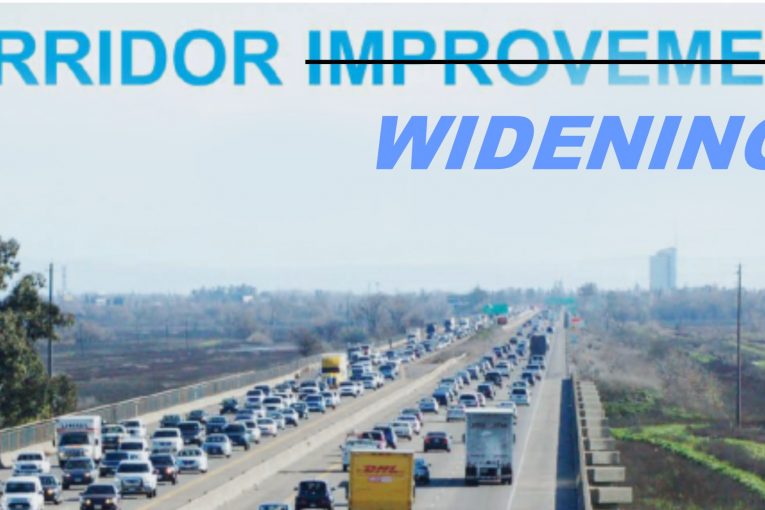

Guest Submission: Sierra Club and Environmental Council of Sacramento Sue Caltrans over Environmental Deficiencies of Yolo I-80 Freeway Widening Project
Davis, CA – On May 29, the Sierra Club and the Environmental Council of Sacramento (ECOS) filed a lawsuit against Caltrans alleging legally inadequate environmental analysis of the I-80 freeway widening project through Yolo County.
The lawsuit’s goal is to stop Caltrans from widening 17 miles of the I-80 freeway from six to eight lanes between Davis and Sacramento through the Yolo Bypass Wildlife Area until Caltrans conducts a valid analysis of adverse environmental impacts threatened by the project and implements appropriate mitigation for these harmful effects.
Caltrans’ Environmental Impact Report (EIR) grossly underestimates increased vehicular travel, which would emit far larger quantities of greenhouse gases (GHG) and air pollutants than claimed. The EIR fails to consider viable alternatives, such as increased public transit or alternate tolling strategies. Therefore, the project neither adequately manages demand nor produces adequate revenue to fund needed transit alternatives. Also, Caltrans’ proposed mitigation is woefully inadequate to offset the resulting increased GHG and air pollutant emissions.
Caltrans violated the California Environmental Quality Act (CEQA) by failing to acknowledge that freeway widenings do not produce less congestion but, in fact, result in increased traffic — leading to worse congestion and pollution – due to “Induced Demand.”

Proven by decades of research, including studies at UC Davis’ famed National Center for Sustainable Transportation, Induced Demand recognizes that as more freeway lanes are added, traffic will disproportionately increase so that, 5-10 years later, congestion will be even worse.
For years, Caltrans’ answer to congestion has been to simply widen freeways. However, landmark California legislation (SB 743) requires that major roadway projects must be analyzed using “Vehicle Miles Traveled” that includes the impact of development projects on vehicle use.
Additionally, SB 32 requires California to reduce its GHG emissions by 40% by 2030. However, this freeway widening project would substantially increase GHG emissions, pushing California further towards irreversible climate change.
According to the Sierra Club Yolano Group Chair, Alan Pryor, “The EIR for the I-80 widening shows Caltrans is stuck in reverse when we need to move our region forward by investing in real alternatives to congestion that don’t just put more cars on our roads and smog in our air. Instead of spending hundreds of millions of taxpayer dollars laying down concrete and asphalt that locks us into a future of car dependency at the expense of community health and our environment, Caltrans needs to get serious about real alternatives such as improved frequency and access to public transit.”
ECOS’ Climate Committee Chair, Ralph Propper, added, “The Sacramento metro area is consistently in the top ten worst in the country for unhealthy levels of ozone and particulate matter – more traffic will make this even worse! Furthermore, the increased pollution will especially impact West Sacramento residents, where almost a quarter of the population is below the poverty line. The EIR does not consider tolling existing lanes – which could be based on income – with funds used to provide clean public transit and bike/ped options along the corridor, facilitating affordable infill development. Caltrans must be called to task for its legally deficient actions. This lawsuit’s goal is to require Caltrans to change its ways, by providing sustainable transit options instead of just more pavement.”
The Natural Resources Defense Council (NRDC), representing the Planning and Conservation League along with the Center for Biological Diversity, also filed suit to challenge the Yolo I-80 highway expansion project.
It’s no wonder that outside a some major metropolitan areas (not Sacramento), only 5% of commuters bother to use public/mass transit. I surmise that in those few metropolitan areas where a large percentage of commuters actually take public/mass transit they do so because cars are too inconvenient. Conversely in the rest of the United States so few utilize public/mass transit because it’s simply too inconvenient and they don’t want to adjust their schedules to rigid public transit schedules.